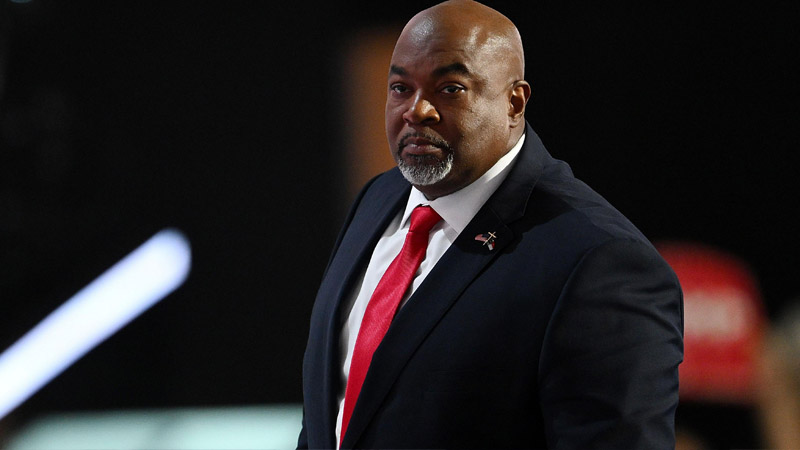As scandals continue to plague prominent Republicans, a former professor from the U.S. Naval War College argues that the GOP appears to have embraced a “consequence-free” attitude towards offensive rhetoric and behavior. Amid accusations involving North Carolina Lt. Gov. Mark Robinson and Louisiana Rep. Clay Higgins, Tom Nichols, an emeritus professor of national security affairs, is questioning whether the party has any limits left.
Robinson, the GOP’s gubernatorial candidate in North Carolina, was recently linked to pro-slavery and pro-Nazi content on a pornographic site, according to a damning CNN report. The report alleged that Robinson posted comments on the website Nude Africa, where he referred to himself as a “black NAZI” and expressed disturbing views in support of slavery and transgender pornography. Robinson has denied these accusations, but the scandal casts a shadow over his campaign.
Meanwhile, Rep. Clay Higgins, a Republican from Louisiana, quietly deleted a controversial social media post this week after being pressured by the chair of the House’s Black Caucus. Higgins’ post referred to Haitians as pet-eating “thugs,” sparking outrage. “These Haitians are wild,” Higgins wrote. “Eating pets, Vudu, nastiest country in the western hemisphere, cults, slapstick gangsters… but damned if they don’t feel all sophisticated now, filing charges against our President and VP.”
The offensive comments by both Robinson and Higgins drew the attention of Nichols, now a staff writer for The Atlantic. In a scathing op-ed, Nichols condemned the rise of offensive rhetoric in the Republican Party, arguing that the behavior now tolerated within the GOP would have been unthinkable just a few decades ago.
“The limit for this kind of ghastliness does not seem to exist,” Nichols wrote, noting that today’s GOP is almost unrecognizable from the party he once aligned with. Reflecting on the 1990s, he recalled how the kind of racist and inflammatory rhetoric heard today would have been met with public disgrace and shunning.
Nichols took aim at Donald Trump, who has spent years building his brand around “telling it like it is.” According to Nichols, Trump’s style of rhetoric has given many Americans permission to express their “worst selves.”
“Trump has gotten away with this cowardly schtick for years, and he has built a following among Americans who take his hideous pronouncements as permission to be their worst selves,” Nichols wrote. “People now delight in shocking others the way toddlers who have learned their first swear words enjoy seeing the horror of adults around them.”
Nichols didn’t stop at criticizing Trump—he also took a swipe at Higgins, calling him a “clever” but “odious racist” who knows that the party will back him out of “tribal loyalty.” Nichols speculated that while Higgins may escape major consequences for his comments, Robinson’s future may be less certain. Despite his refusal to drop out of the gubernatorial race or resign, Robinson may face a harsher political backlash as the scandal continues to unfold.
Nevertheless, Nichols raised an important question that goes beyond individual scandals: “When do so much racism, misogyny, and xenophobia finally become so toxic that Republicans join with other decent people in rejecting such behavior?”
Attempting to answer his own question, Nichols arrived at a bleak conclusion. “Right now, the limit for this kind of ghastliness does not seem to exist. And that is a tragedy for what’s left of the GOP—as well as for the civic health of the world’s greatest democracy.”
Nichols’ critique highlights the growing concern among some Republicans and political observers about the party’s trajectory and the normalization of behavior that was once unthinkable in American politics.

